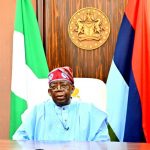SHOULD NIGERIA RETIRE OR RETRY @65?
By Obat
At 65 years of independence, Nigeria stands at a critical crossroad. For a civil servant, this age means retirement—a bowing out after decades of service. But for a nation, it is a moment of sober reflection: should Nigeria retire into irrelevance, or retry its march toward greatness?
From the dawn of independence in 1960, the nation’s journey has been a chequered one. The First Republic was short-lived, cut down by military incursions that promised rescue but left scars of their own. Successive military regimes wrestled with coups, counter-coups, civil war, and authoritarian decrees, often trading national growth for personal power. Civilian administrations that followed came with high hopes, yet struggled to translate democracy into dividends for the common citizen.
The return to democracy in 1999, the 4th Republic, was supposed to be the golden era. Yet, two decades on, Nigerians ask: where is the gold? The economy is fragile, insecurity is at an all-time high, and kidnapping has graduated from an aberration to a full-blown profession. A degree, once a ticket to jobs, cars, and dignity, now stamps many into the endless club of “applicants.” The moral compass has tilted: fraud is called “smartness,” abnormalities have been normalized, and patriotism is scarce as elites stash wealth abroad while citizens languish at home.
Yet, in fairness, not all has been gloom. Nigeria has weathered wars, survived dictatorships, conducted elections—flawed but improving—and remained a united entity in the face of predictions of disintegration. Nigerians, resilient and resourceful, still shine across the globe in innovation, sports, culture, and academics. These are victories worth noting.
Still, the good is too little, the bad too stubborn, and the ugly too glaring. Should we retire? Retirement, in national terms, would mean resignation—accepting mediocrity, embracing corruption as culture, and letting hopelessness spread unchecked. But retrying demands courage. Retry means confronting corruption with true political will, fixing the education system, restoring security as priority number one, investing in industries that create jobs, and reviving patriotism by leaders leading through example, not exploitation.
Nigeria at 65 must not retire. The nation must retry—with renewed vigor, with lessons from the past, and with an unwavering commitment to a future where citizens no longer flee their fatherland, but flourish within it.
As history looks back and the future peers forward, the choice is clear: Nigeria’s best years must not be behind it—they must still lie ahead. But that depends on us.
Should Nigeria retire or retry? The answer is retry. But this time, with honesty and renewed resolve to save the soul of our Nation.
Obat Isaiah Eseyin MCFP












